04:07
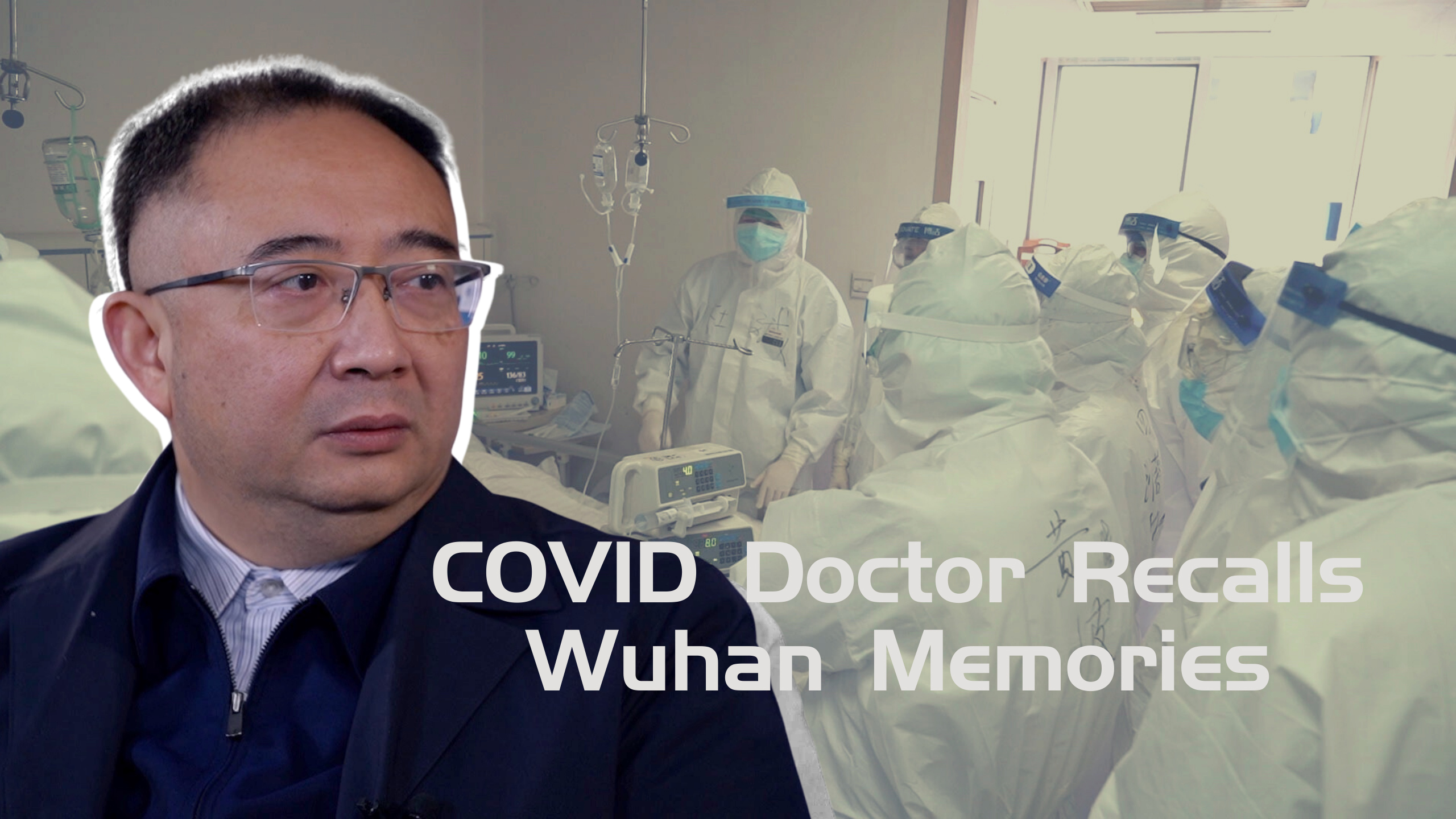
For two months in early 2020, CGTN filmed the environment inside a Wuhan Red Cross Hospital intensive care unit (ICU), following the work of doctors and nurses as they tried to save critical COVID-19 patients whose lives were hanging by a thread.
We met Dr. Huang Xiaobo, a critical care professional from southwest China's Sichuan Province who went to Wuhan to help. The Red Cross Hospital was on the verge of collapsing, and Huang took over as the head of the ICU department.
A year and a half have passed. CGTN caught up with Huang again in Chengdu, the provincial capital of Sichuan. Looking back, he still struggles to make peace.
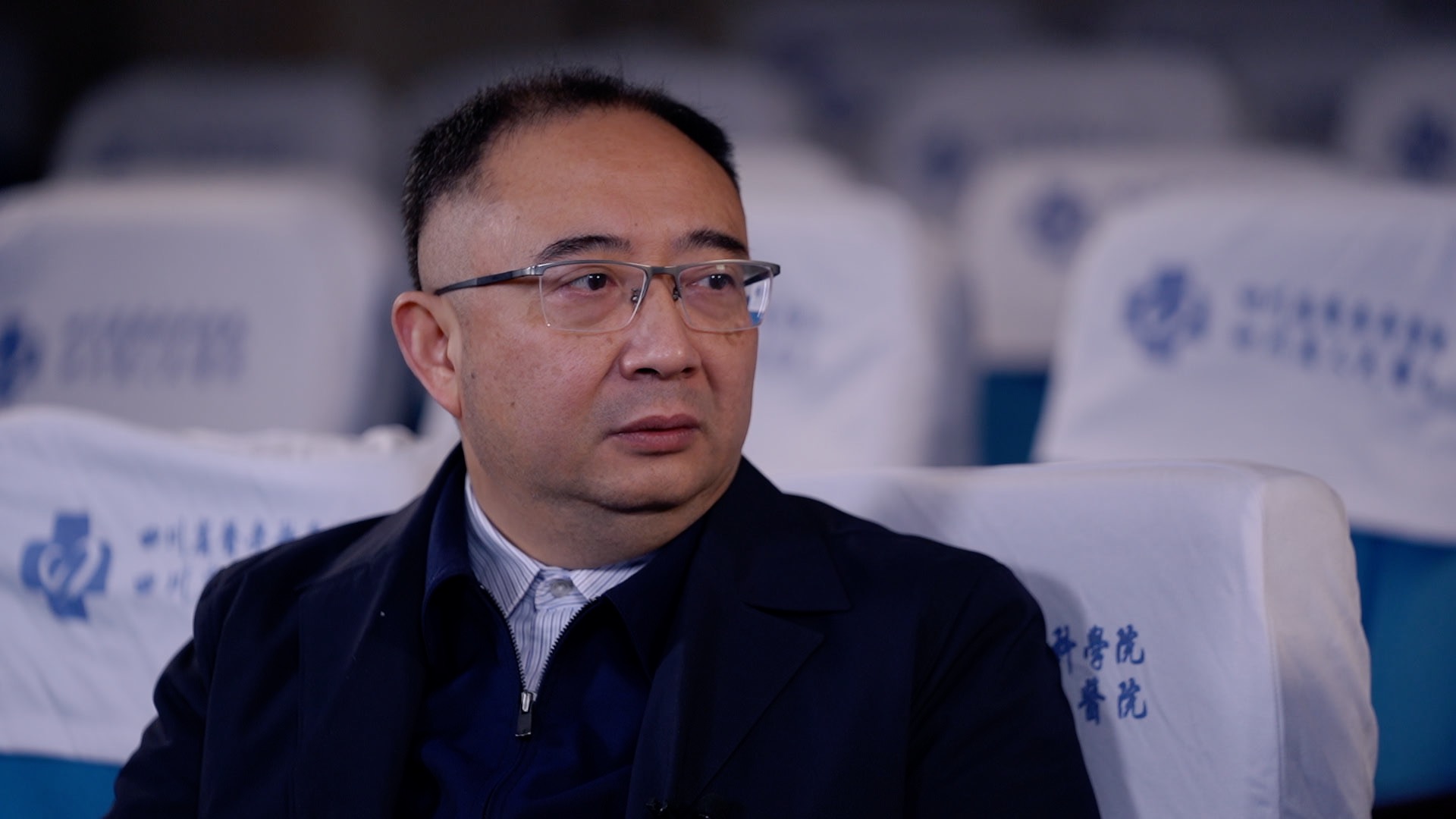
"I came back to Chengdu, my home turf, and saw a happy and peaceful atmosphere," Huang told CGTN. "Our patients here at home survived one after another. It made me think of those failed cases in Wuhan, and they came crashing down on me like mountains."
The survival rate for critical COVID patients was less than 40 percent, Huang knew that. But it didn't soften the blow. "I felt useless," he said. "And that feeling of defeat has left its mark on me."
Huang defies the typical stereotypes of a doctor. He burst into a sudden song about spring coming and flowers blooming after a patient successfully came off life support.
He once consulted his colleagues on whether a 65-year-old female patient should be put on ECMO, a machine that artificially oxygenates blood outside the body, temporarily taking over the work of the patient's lungs to allow time for them to heal. When most advised against it, he still went ahead.
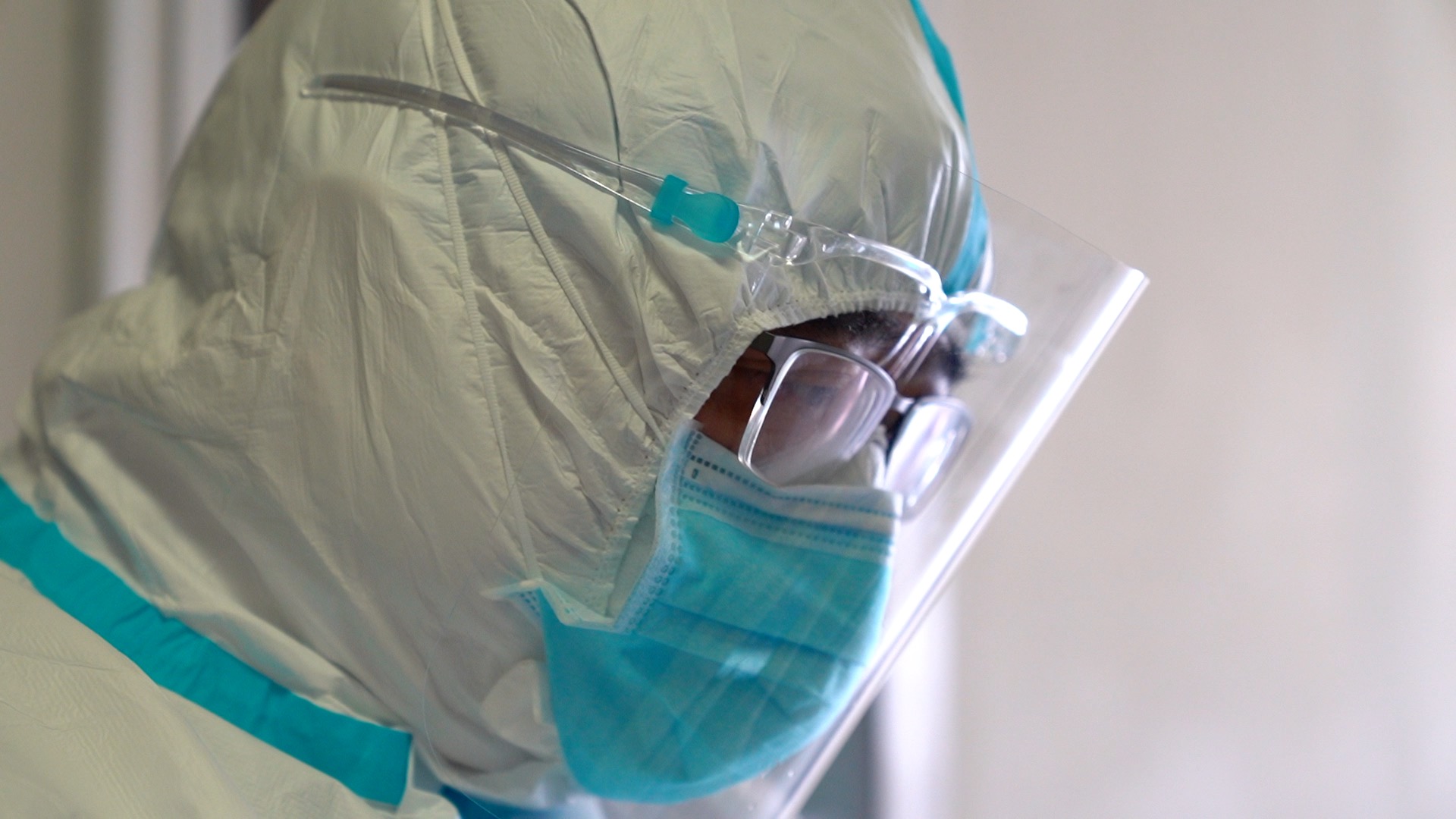
Dr. Huang Xiaobo wearing protective clothing. /CGTN
Dr. Huang Xiaobo wearing protective clothing. /CGTN
Asked whether he would've done otherwise under other circumstances, whether unrelenting treatment would only prolong the suffering of the patients when death was inevitable, Huang said, "To put it in an ethical perspective, yes, I could only make them survive longer, I could not change the result, nor improve the quality of their life."
"But so many people were dying in such a short period of time. I don't know. I'm not a machine. I couldn't calculate who could survive. I wanted to give everyone my best try," he said.
Huang said the Wuhan outbreak reminded him of 2008 when a massive earthquake hit his hometown of Sichuan. About seventy thousand people died in that earthquake. Rescue workers and medics from all over the country flooded in to help.
"In disasters like this, you become a pure doctor," he said. "The country put so much faith in us and supported us unconditionally. Patients' family trusted you unconditionally. The faith that people place in one another, that was an unbearable weight. I mustn't let them down."
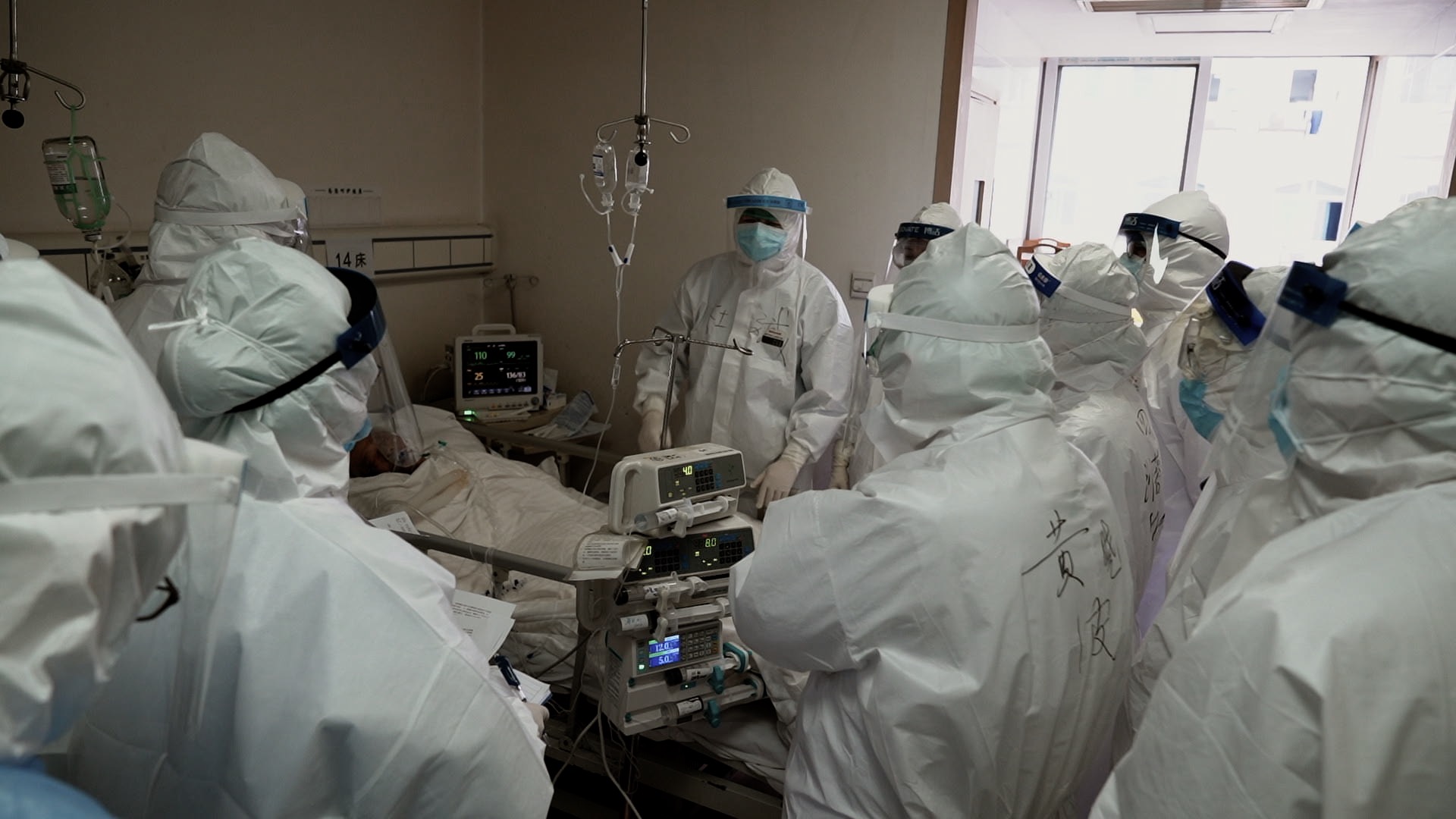
Inside an ICU ward at Wuhan Red Cross Hospital. /CGTN
Inside an ICU ward at Wuhan Red Cross Hospital. /CGTN
Huang's ICU was the last line of defense between life and death. But apart from the patients, he needed to look after his own team.
"This kind of high-intensity work put pressure on everyone," he explained. "Everyone was reaching their limit."
Dr. Liu Rongan, another doctor on the team, told a story about another colleague, Dr. Wu Yaqiu. "We suspected she sleepwalked," Dr. Liu said. "Because she told us her knee was bruised for no reason."
"I had more than 200 people on my team," said Huang. "I felt sorry for taking them on this mission."
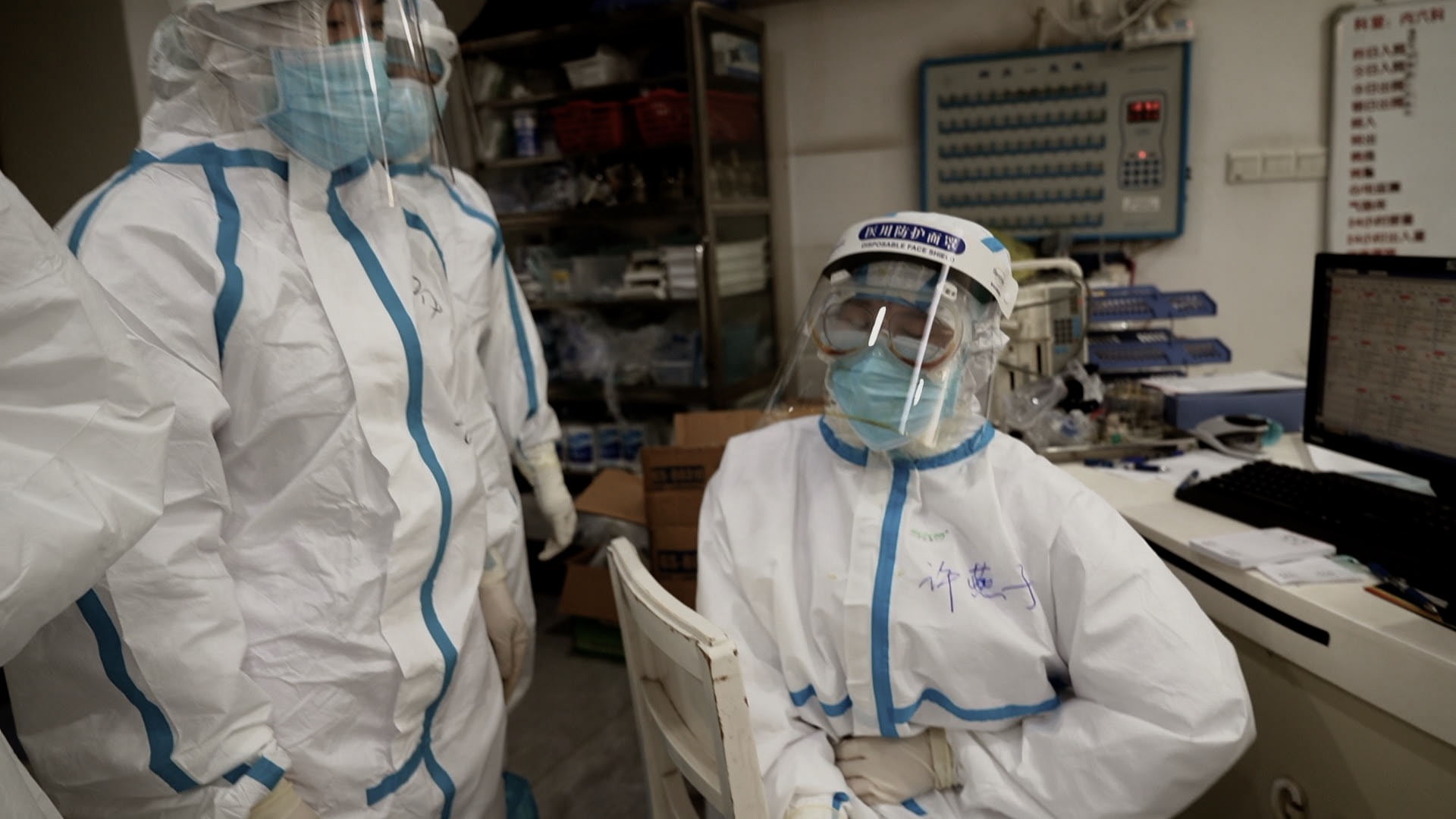
An ICU nurse, Xu Yanzi, feels unwell due to unrelenting, high-intensity work. /CGTN
An ICU nurse, Xu Yanzi, feels unwell due to unrelenting, high-intensity work. /CGTN
The team fought for 54 days in Wuhan. A year later, they went back to the city that was slowly coming back to life. The reunion with the local medical team was emotional for everyone.
"We were like soldiers on the battleground who ran out of all their food and ammunition supplies," said Dr. Peng Yong, chief physician of the Red Cross Hospital ICU. "They saved us as much as they saved the patients. They gave us a new life, and for that, we will forever be thankful."
"I'm seeing this new life in Wuhan, this wonderful energy," said Huang. "You hear the hustle and bustle on the streets, the liveliness of the small restaurants. The shops are all open. We need to turn the page. I think I can finally let go. I've done my best. I have no regrets."

